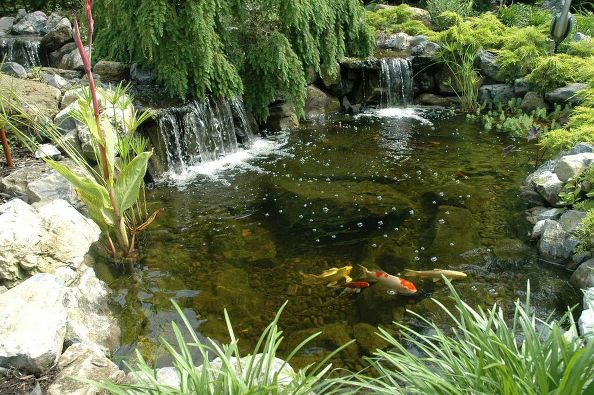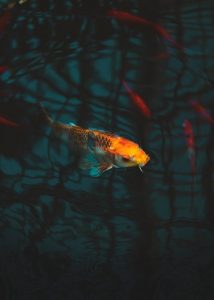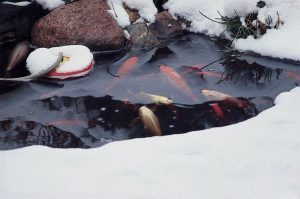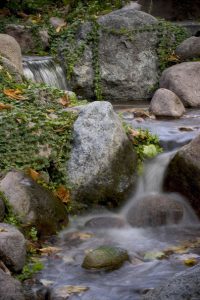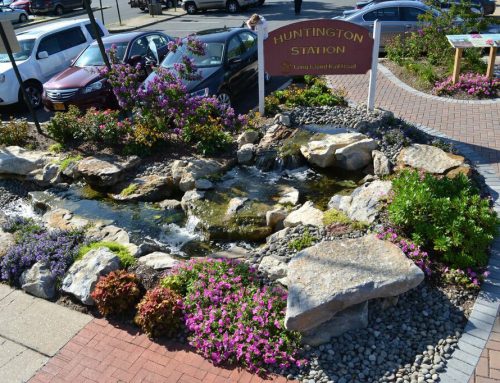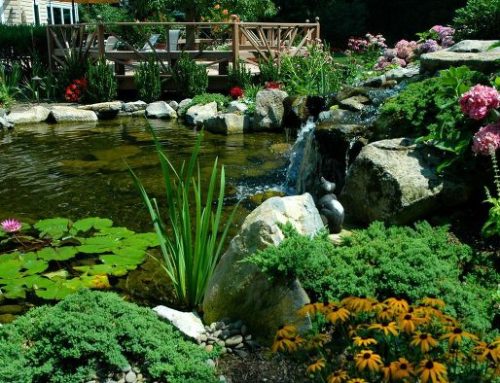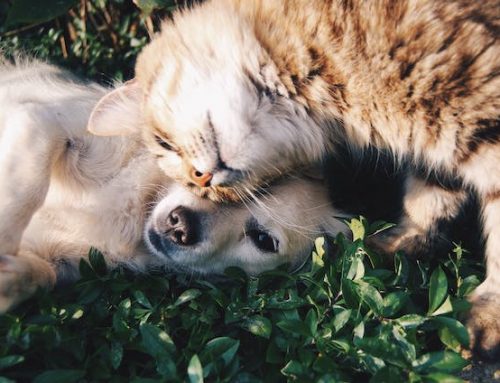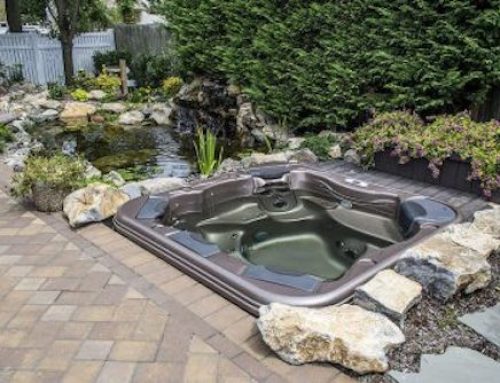Our blog last week suggested netting your pond before the leaves fall. It’s worth doing in the next few days if you haven’t done it yet. This is also the time for pond owners to be fattening up their pond’s fish.
When pond water gets below 59 degrees, you can — and should — plump up your darlings to survive winter hibernation. Using fish food made for cold water, gradually increase how much you feed these lovely fish as temperatures start to drop.
As the water temperature continues to drop, gradually reduce the amount you feed them. Once temperatures go below 55 degrees, says Dave Kelly, from Aquascape inc., the metabolisms of pond fish slow way down. And when pond water gets down to 50 degrees, do not feed the fish any more. Their systems shut down in the colder water, and food sits inside them and rots. They get very sick and diseased from this.
So even though there is nothing cuter than your koi coming to you for more food, once the water gets to 50 degrees, experts say stop feeding them entirely.
The Koi Will Be Fine As Temperatures Drop
It is a common myth that you can’t leave your pond fish outside once the cold sets in.
Actually, fish do just fine even during winter. That said, Dave Stockwell of Deck and Patio does caution to be alert. When ice covers the pond, the fish might not be getting enough oxygen.
This can be remedied as long as you give them:
•two feet of water to swim in,
•oxygenate the water,
•and keep a hole in the ice with a heater, bubbler and an aerator.
Note: In a few weeks, we’ll write more on caring for pond fish in winter.
Chemical Pond Treatments
This is also the perfect time to treat your pond ahead of the cold weather. Realize, that even if you netted your pond, some debris will make it into the water no matter how careful you are.
Dave Kelly recommends adding a cold water bacteria treatment, which has concentrated strains of beneficial bacteria that works well below 50 degrees (F).
Kelly recommends adding it routinely to help maintain water clarity and quality.
Do a little pond maintenance (see last week’s blog) and care for your pond fish, and when spring arrives, you’ll be glad you did. Your pond will require much less work to begin your new season of pond-side outdoor living .
If you have any questions or would like assistance with preparing your pond or caring for your fish, contact our office at 631-549-8100.

